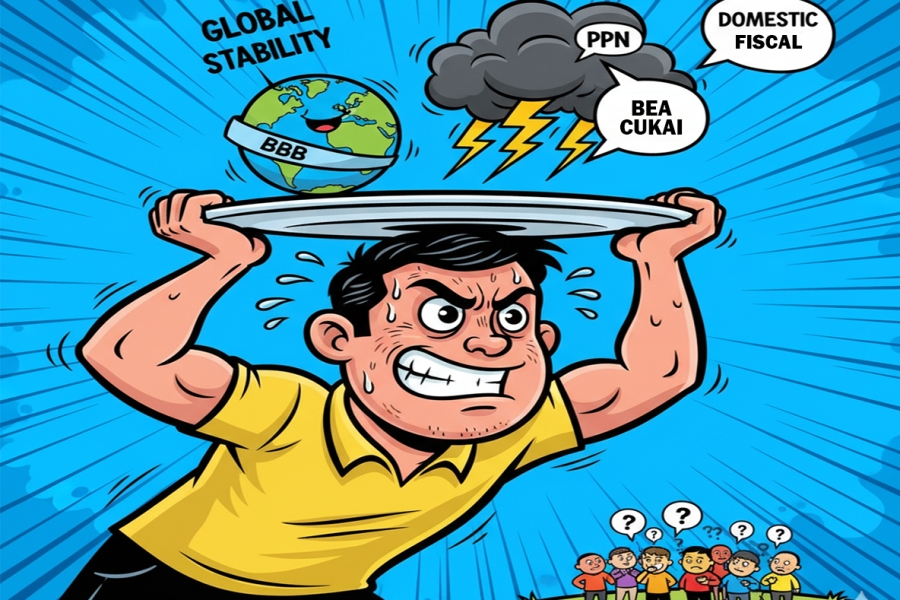
The current situation highlights the balance between Indonesia's macroeconomic resilience in the global arena and domestic fiscal challenges. Fitch Ratings maintains Indonesia's Sovereign Rating at BBB with a stable outlook, affirming the strength of the national economic fundamentals. On the other hand, Finance Minister Purbaya Yudhi Sadewa reveals that a 1% reduction in the VAT rate could erode potential revenue by up to Rp70 trillion. Meanwhile, the Customs and Excise office raid related to the alleged Illegal Export of Crude Palm Oil (CPO) waste demonstrates the government's commitment to rule enforcement, amidst Foreign Investor caution as they await the direction of future policies.
Indonesia's economic fundamentals show resilience in the eyes of the international community, but domestic Fiscal Policy presents dilemmas and risks. The Rating Agency Fitch Ratings maintains Indonesia's Sovereign Rating at BBB with a stable outlook. This decision affirms the resilience of Indonesia's economic fundamentals and provides a positive signal to the international market. However, Finance Minister Purbaya's Fiscal Policy is considered brave, but risky towards Financial Stability. This assessment highlights the potential impact of aggressive fiscal policies on the budget balance.
This fiscal dilemma is clearly reflected in the Value Added Tax (VAT) issue. Minister Purbaya states that if the VAT rate is reduced by 1%, the state will lose Rp70 trillion. This statement explains why the government is cautious in responding to calls for a VAT reduction, showing a dilemma between consumption stimulus and the need for state revenue. Meanwhile, efforts to enforce rules within state revenue agencies continue: The Customs and Excise office is raided regarding the case of Illegal Export of CPO waste, and Minister Purbaya speaks out about this case. The raid indicates a serious enforcement effort against illegal trade practices within the customs institution.
The policy risks and enforcement efforts influence market sentiment. Foreign Investors are still in a wait-and-see position regarding entering Indonesia's Financial Market. This stance reflects investor caution regarding global and domestic risks, including the impact of brave fiscal policies and enforcement cases within government agencies.
Fitch Ratings' decision to maintain the BBB Sovereign Rating as stable provides a buffer against external risks. However, internally, Minister Purbaya faces criticism over Fiscal Policy that is considered brave but risky, which drives the wait-and-see stance from Foreign Investors. The Minister's explanation of the potential loss of Rp70 trillion if VAT is reduced by 1% becomes a strong argument for withholding VAT stimulus. Meanwhile, the Customs and Excise office raid demonstrates a commitment to enforcement, which is hoped to increase the credibility of state revenue agencies.
Current developments show a contrast between the stability of Indonesia's Sovereign Rating at BBB, reflecting strong economic fundamentals, and the persistent domestic fiscal challenges and policy risks. Finance Minister Purbaya needs to be cautious in handling sensitive issues such as the potential loss of Rp70 trillion in VAT revenue and the emerging Customs and Excise case, so that Foreign Investor confidence can shift from a wait-and-see attitude to actual investment inflow.